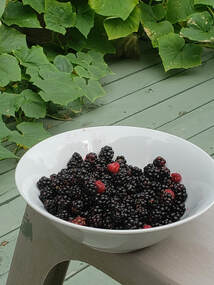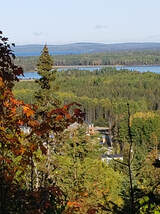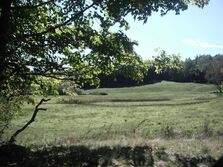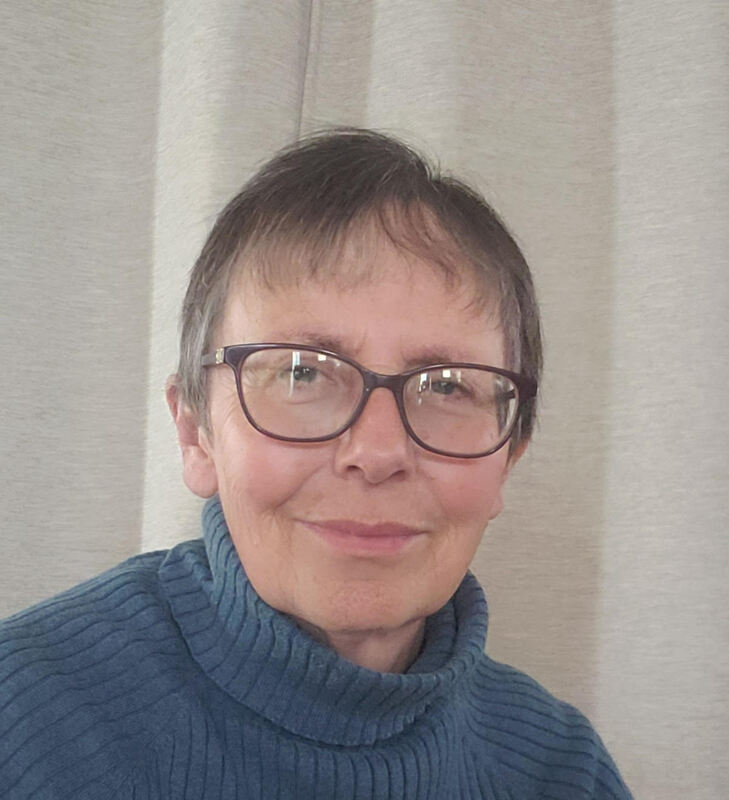AuthorAnne M. Smith-Nochasak: Archives
July 2024
Categories |
Back to Blog
Clear Cut Teachings8/18/2021  Here, in the clear-cut, in this torn and devastated land, I find these berries, shining and fresh with the morning. This is a precious gift to receive – the affirmation that nature can renew, even this little bit. This section of the Park is stark and lonely, a glimpse of post-apocalyptic Kejimkujik. The rain falls harder. Once, canoes pulled to the shore, as the People made their way from the interior down to the sea. They journeyed back and forth, back and forth, and there was meaning and reason in each movement, and the hemlocks, the dead and the living, were not lonely.
Committees are formed and protests are held; these are good things that raise awareness. Still the temperatures soar, fires rage, and there are earthquakes in divers places. Viruses outmaneuver vaccination efforts. Wars worsen and acts of terror horrify. The hollow eyes of starving children stare into the camera. Our world has become a scene from a fantasy novel or dystopian tale and, for some, a prophetic fulfilment. Creation is set in motion according to natural laws. We study these laws and look for ways to improve them. We have done great things, but at great cost. The Creator does not reverse our failures; this would reduce the splendid laws of the universe to whim and fancy. We have done this to ourselves, and must take responsibility. I walk the clear-cut, and I weep for Mother Earth. Yet there, amid the scrub, clusters of blackberries gleam. Here, in the clear-cut, in this torn and devastated land, I find these berries, shining and fresh with the morning. This is a precious gift to receive – the affirmation that nature can renew, even this little bit. Look here, a voice whispers, for here is light in darkness, hope in despair. This is a miracle, and what is a miracle but a science that you do not know? Walk with reverence here, for I am making all things new. Remember that you belong to the earth, that the earth does not belong to you. Learn from the earth, but do not presume to teach it. The earth will renew itself, if you let it happen.
4 Comments
Read More
Back to Blog
Real Directions Tell a Story8/11/2021  Good directions are supposed to inform us. Good directions are rich in history. Maritime directions are like that. Thank God her brother had some Thanksgiving spirit and common sense and said she was teaching out near “The Park.” And thank God for the friendly staff at the gas bar who gave him good directions to this godforsaken lump of a house. They said his dog would love the fields but not to let him chase deer. Apparently, they came out where a barn or something used to be.
Doug Simmons in A Canoer of Shorelines is used to functional directions, the kind that he would get today on a search engine. Turns, exits, distances – all are rendered without emotion, without the background detail that makes them real for some of us. When I was driving the back roads to Val d’or, Quebec, and the cheery computer voice announced “Turn left at the fork in the road”, I began to seek that fork. Suddenly the voice exclaimed, “Take the left fork now!” There was a compelling urgency in the voice, and I slowed down, my eyes sweeping the trackless forest to my left. I could see occasional gaps between the trees; perhaps there was once a logging road out there. The Voice was still trapped in that era, and insisted that I drive out into the trees. When I did not, there was an abrupt blip, and my screen went grey. The Voice does not manage rejection well. Ten kilometres later, the voice had forgiven me, and announced, “Continue for twenty-seven kilometres.” Perhaps computer voices cannot convey sullenness, but this one came close. I glanced back, and sure enough, there were gaps along the swamp. Once, there was a road. I am a Maritimer, and we don’t manage functional directions well. We want the story! I wanted that computer voice to tell me the entire story; perhaps it could say, “Now we always turned left about here; you can see traces of the road if you look. There was a well-kept logging road, and it was our favourite shortcut. Then times got hard, and the trucks stopped running. They weren’t going to maintain it – it was along the swamp after all – so we keep to the main road now. Too bad about that.” Or maybe, “When [Name] won the lottery, they built a beautiful lodge back there and people came from miles around. They got old though, and their kids didn’t want a lodge, and it’s all grown in now. Kind of a shame.” Good directions are supposed to inform us. Good directions are rich in history. Maritime directions are like that. Most of us, when we go to town, confuse Aberdeen and Dufferin unless we are on them. The Call Centre is on Dufferin (I think), but good directions would begin “You know where the old hospital used to be? Yes, handy the fair grounds. Just down the hill….” I once witnessed a clerk in town providing functional directions to the central post office. “You go down Victoria Road, cross the bridge and up Aberdeen, then turn left on the number 10….” The listener’s eyes began to glaze. I leaned forward. “Just past Frenchy’s, on your left, if you’re heading for Walmart.” The person was a Maritimer; we have an inner tracking device that will guide us to the nearest Frenchy’s. But rural directions give the best history. The more rural the place, the richer the history. If you stand at the grocery store and ask directions to the hardware store, you might learn that: The hardware store was always where the pharmacy is, right on the corner. They kept their supplies where the new place is. Of course, in those days the pharmacy was where the restaurant is today. They have good specials. The pharmacist always closed from twelve to one, but the new place is open. They have good gifts in there. Yes, the hardware store. You hold to the left at the corner, right where the pharmacy is, and you go past Duke’s barbershop. Of course, the barbershop is long closed – used to have a bowling alley there, and after it became a pizza shop. It’s all boarded up but it says “Pizza” and she made good ones, I must say. Now on your left a ways down, you’ll see our new medical centre, where the liquor store used to be but not exactly. The hardware store is just below, on your right, behind where the train station was. Yes, and the Mersey barns and all…” You learn local history, and get a taste of what makes a place special, what makes it home to so many. You will never get that from “Stay on Route 8 South for about one kilometre. It’s on the right, and it has a sign on the road.” Learning directions as a Maritimer has prepared me for interactions with other cultures. “Where does this parent live?” I asked a teaching colleague in one community, indicating a name on my list. “Oh! That’s easy!” she exclaimed. (I was sure it was not.) “You know where my new house is?” “Not really.” “Well, they’ve got the frame up now, over there.” She waved across the parking lot toward the lake. “It’s the orange one, right beside it. The one that’s brown but not blue.” Being a Maritimer, I knew all would be revealed at the right time. Sure enough, as I wandered along, I saw the frame of a house rising beside the road. Close beside it were two bungalows; one was orange with brown panelling, and the other was blue with brown panelling. It was easy to pick the orange house that was brown, not to be confused with the blue one that was brown. Good directions don’t always make sense at first, but they will if you trust them. Some might think there is a hunt of mockery here. I assure you, there is not. These are my people, my language, and my history. This is my home. This is how we are. Doug, once again you have missed out. I must go find an Internet connection and post this. You know that ledge where the snowplough turns? Okay! You go past that, past the old farm on the river. They haven’t hayed there in years. Once though, it was a farm and the foundations are still there. You can’t see the river because it’s down behind the hill. Well, pass that road and at the top of the hill on your right there is a ridge. Some days you get a signal there.
Back to Blog
Who are the Neighbours?8/4/2021  For many of us fifties children, worrying over the viewpoint of others is natural. We were raised on the fundamental question of life: What will the neighbours say? This was sometimes restated: What on earth must people be thinking? Resentment, not gratitude, is rising in Julie, and for this she is sorry. However, she was mowing happily, the night far away from the sunny morning, and now it is over and Laila, not Julie, has saved the day and possibly the farm. Soon, every house will buzz with the knowledge that the new tenant has set the prized mower on fire. Heads will shake as hands reach for the phone. This one is surely worse than those bootleggers—remember them? Soon, Samuel will know that he has a very bad tenant, and will be studying the lease for clauses relating to termination of agreement.
For many of us fifties children, worrying over the viewpoint of others is natural. We were raised on the fundamental question of life: What will the neighbours say? This was sometimes restated: What on earth must people be thinking? How many times did we huddle at the scene of our latest crime, shoulders drooping, while a parent stared us down, a fist pressed to one hip, the other hand pointing to the horror we had been perpetrating, while demanding: What will the neighbours say? Not: Do you seriously believe those paper bags and scotch tape would make an air balloon capable of flying your sister across the first field? From the top of the barn? The social perception, not the science, was challenged. Did they assume that we understood the science, but hadn’t stopped to consider the long-reaching social implications? So you are five, and decide that sitting on the sheep pen fence with one leg dangling into the pen is a safe and happy practice. As you cling to the fence post screaming and the ram (this referring to the usually volatile male sheep of the herd, with the well-chosen name “Dynamite”) pounds your leg into the boards, a conversation develops. Mother (from porch): What’s all the yelling? Child (from fence): My leg! My leg! Dynamite’s got my leg!!! Mother: Well, that will teach you to play on the sheep pen. Now get off. Child: My leg! My leg! Dynamite’s got my leg!!! Mother: Get off the fence then. Before you tear your clothes. Child (descending from the fence, snivelling): My leg’s all black and blue. Mother (checking a small bruising below the knee): What were you thinking? My god, what will the neighbours say? Yet she hugs the child long and hard, rocking back and forth. Somehow, we knew that behind the gruff exterior beat a heart that was terrified – a heart that cringed at every bruise, a heart that wanted to boot the ram across the sheep pen and did not dare betray its weakness. The neighbours were the personification of their own self-judgment. So, like good children, we followed the rules and lived secret lives. No, we did not to go swimming below the bridge because there was a soft bottom there. Instead, we built rafts using splintery old boards, made buoyant by empty sixties-issued bleach jugs, the ones that would deflect bullets. We climbed over sharp tin cans in the dump to find these. We bobbed, swayed, and tumbled, but we did not swim below the bridge. When I was afraid of the dark, a plaster guardian angel was placed by my bed and I prayed dutifully to it for protection. Then I loaded my cap gun and slipped it under my pillow. When the night creatures surrounded me, I clutched the stock of my trusty six shooter and knew I was safe. I declared the prayer, but not the gun. We raced along the beams in the hay loft, and sprang from bale to bale. We reported the truth; we were playing in the hay, and we saw the pigeons! Somehow we survived a riotous game involving shoving one another off the hay wagon, without broken limbs or damage to the spine or brain. We were playing on the wagon! I have no idea what the neighbours would have said, because we shielded our secret lives from parents, neighbours, and anyone else. That is why I raised my own child with particular care. I knew what he was capable of. Yet I have walked through a grove of trees to applaud the booby traps my son and his cousin had placed. I recall my amazement as a great log went whizzing past my head, released by a trip wire. It was a feat worthy of physicists. They were ten. And like ten year olds they were both proud of their achievement and horrified by the language with which I pointed out the inherent dangers of their cleverness. Oh! What would the neighbours have said if they could have heard me! The trick, Julie, is not to let the neighbours rule you. Parents used the neighbours only allegorically. What will the neighbours say? translates I have failed to keep you safe, and you are the world to me. The neighbours are not lurking in the shadows, judging. You are judging them with your eyes, and judging yourself through their eyes. Embrace the love and the fear behind the question of the past, and get on with your adult life. That is all the time I have. I have to find an Internet signal, and get this jumbled reflection posted. What will the neighbours say if I am late? |
ANNE M. SMITH-NOCHASAK

 RSS Feed
RSS Feed
